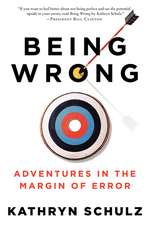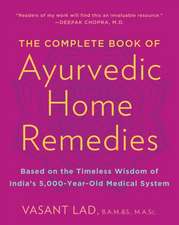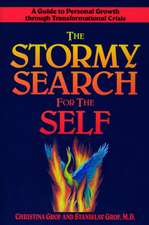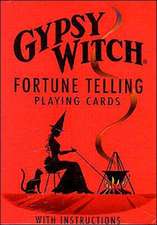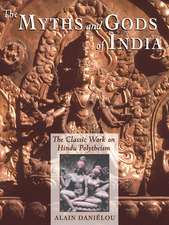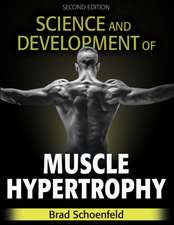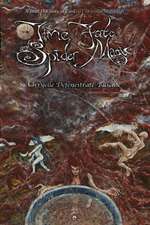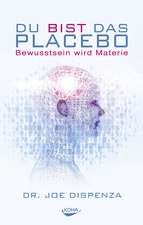The Complete Kama Sutra: The First Unabridged Modern Translation of the Classic Indian Text
Traducere de Alain Daniélouen Limba Engleză Paperback – dec 1993
The world's oldest and most widely read guide to the pleasures and techniques of sex, the Kama Sutrawas compiled in the fourth century A.D. by a Brahmin and religious scholar name Vatsyayana, who worked from texts dating back to the fourth century B.C. Until the present, the only English translation of his Hindu love classic was that of the famous English explorer Sir Richard Burton, published in 1883. Unlike Burton's version, Alain Daniélou's new translation preserves the numbered verse divisions of the original and includes two essential commentaries: the Fayamangalacommentary, written in Sanskrit by Yashodhara during the Middle Ages, and a modern Hindi commentary by Devadatta Shastri. Whereas Burton's Victorian reluctance to translate certain terms obscured our understanding of the philosophy and techniques of the Kama Sutra, Daniélou has preserved the full explicitness of the original, dealing with everything from the art of scratching to relations with the wives of others. Realistic and pragmatic in its approach, the Kama Sutradeals without ambiguity or hypocrisy with all aspects of sexual life--including marriage, adultery, prostitution, group sex, sadomasochism, male and female homosexuality, and transvestism. The text paints a fascinating portrait of an India whose openness to sexuality gave rise to a highly developed expression of the erotic.
Preț: 92.65 lei
Nou
17.73€ • 18.51$ • 14.67£
Carte disponibilă
Livrare economică 21 martie-02 aprilie
Specificații
ISBN-10: 0892815256
Pagini: 576
Dimensiuni: 152 x 229 x 41 mm
Greutate: 0.68 kg
Ediția:Prescurtată
Editura: Inner Traditions/Bear & Company
Colecția Inner Traditions
Locul publicării:United States
Notă biografică
Alain Danilou (1907-1994) was without question a Renaissance man. Following his early years as an artist, dancer, and musician in Paris (Cocteau, Diaghilev, and Stravinsky were among his friends), Danilou settled in India, where he spent fifteen years in the study of Sanskrit, philosophy, and music. After numerous university appointments in India, he returned in 1963 to Europe, establishing the Institute of Comparative Music Studies in Berlin for the reevaluation of Asian music. Danilou wrote more than thirty books about the philosophy, religion, history, and arts of India, including Gods of Love and Ecstasy; Myths and Gods of India; Virtue, Success, Pleasure, and Liberation; While the Gods Play; The Phallus; and Music and the Power of Sound.
Cuprins
Editor's Note
Introduction by Alain Danielou
Part One: General Remarks
1. Contents of the Book
2. The Three Aims of Life
3. The Acquisition of Knowledge
4. The Conduct of the Well-bred Townsman
5. Reflections on Intermediaries Who Assist the Lover in His Enterprises
Part Two: Amorous Advances
1. Stimulation of Erotic Desire
2. Embraces
3. Petting and Caresses
4. The Art of Scratching
5. Biting
6. On Copulation and Special Tastes
7. Blows and Sighs
8. Virile Behavior in Women
9. Superior Coition or Fellation
10. Preludes and Conclusions to the Game of Love
Part Three: Acquiring a Wife
1. Forms of Marriage
2. How to Relax the Girl
3. Ways of Obtaining the Girl
4. How to Manage Alone
5. Union by Marriage
Part Four: Duties and Privileges of the Wife
1. Conduct of the Only Wife
2. Conduct of the Chief Wife and Other Wives
Part Five: Other Men's Wives
1. Behavior of Woman and Man
2. Encounters to Get Acquainted
3. Examination of Sentiments
4. The Task of the Go-between
5. The King's Pleasures
6. Behavior in the Gynoecium
Part Six: About Courtesans
1. Advice of the Assistants on the Choice of Lovers
2. Looking for a Steady Lover
3. Ways of Making Money
4. Renewing Friendship with a Former Lover
5. Occasional Profits
6. Profits and Losses: Reflections on Doubts Concerning the
Advantages and Disadvantages of Relations
Part Seven: Occult Practices
1. Success in Love
2. Arousing a Weakened Sexual Power
Appendices
1. Texts Quoted
2. Mythical and Historical Characters and Authors Mentioned in the Text
3. Works Consulted
4. Glossary I: Plants, Herbs, Spices, and Sundry Products
5. Glossary II: Special Terms
Index
About the Translator
Recenzii
"Noted Indiologist Danilou provides a fluent and literal translation of the entire Sanskrit original. An important advance over Burton's Victorian abridgment."
"Dildo was translated as 'medicine.' Lesbian was just 'corrupt woman.' No wonder we couldn't follow any of the instructions in the Kama Sutra. But now, there's a new translation of the oldest sex manual, the first since the Victorians brought it home and hid it under the mattress."
"Alain Danielou is the foremost living interpreter of Hinduism. His books are remarkable for their clarity, scholarship, and uninhibited celebration of erotic and mystical ecstasy."
"More than just a pillow book, the Kama Sutra is a guide to the labyrinth of sexual etiquette, from how to bathe before meeting a lover to how lovers should entertain each other after making love. . . . Take from this encyclopedia of amour what you will and let it keep you moving down the path of spiritual practice."
Descriere
The world's oldest and most widely read guide to the pleasures and techniques of sex, the Kama Sutrawas compiled in the fourth century A.D. by a Brahmin and religious scholar name Vatsyayana, who worked from texts dating back to the fourth century B.C. Until the present, the only English translation of his Hindu love classic was that of the famous English explorer Sir Richard Burton, published in 1883. Unlike Burton's version, Alain Daniélou's new translation preserves the numbered verse divisions of the original and includes two essential commentaries: the Fayamangalacommentary, written in Sanskrit by Yashodhara during the Middle Ages, and a modern Hindi commentary by Devadatta Shastri. Whereas Burton's Victorian reluctance to translate certain terms obscured our understanding of the philosophy and techniques of the Kama Sutra, Daniélou has preserved the full explicitness of the original, dealing with everything from the art of scratching to relations with the wives of others. Realistic and pragmatic in its approach, the Kama Sutradeals without ambiguity or hypocrisy with all aspects of sexual life--including marriage, adultery, prostitution, group sex, sadomasochism, male and female homosexuality, and transvestism. The text paints a fascinating portrait of an India whose openness to sexuality gave rise to a highly developed expression of the erotic.

